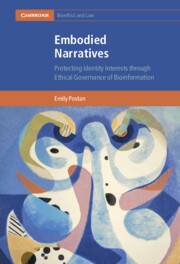Acknowledgements
This book owes its existence to the many friends, colleagues, students, reviewers, and family members who have shared with me their wisdom and inspired and supported me. In addition to those named elsewhere on these pages, thank you to my friends and colleagues in the Liminal Spaces team, in the Mason Institute, and at Edinburgh School of Law – Ted Dove, Murray Earl, Anne-Maree Farrell, Isabel Fletcher, Steph Lewis, Katy MacMillan, Gerard Porter, Sam Taylor-Alexander, and Shauna Thompson – for their solidarity and humour. Particular thanks to Alexandra Braun, Niamh Nic Shuibhne, and Anna Souhami for pushing me to keep on keeping on. Thank you also to my friends and erstwhile colleagues at the Nuffield Council on Bioethics secretariat, including Rosie Beauchamp, Ran Svenning Berg, Kate Harvey, Cath Joynson, Pete Mills, Carol Perkins, Hugh Whittall, and Katharine Wright, from whom I learnt invaluable lessons about thinking, writing, and finishing.
This book began as a PhD thesis, and I owe more than I can say to my supervisors, now colleagues and friends, Sharon Cowan and Graeme Laurie, for their patient guidance, personal and intellectual generosity, and their uncanny abilities to understand which ideas I was reaching for, often before I realised so myself. The arguments presented in this book have evolved through discussions with many people, more than I can name individually. In particular, this book has benefitted immeasurably from the wisdom, insights, and challenges offered by Sarah Chan, Matthew Elton, Agomoni Ganguli-Mitra, Gail Harding, Emma Keir, Chloe Kennedy, Cicely Postan, Nayha Sethi, and Annie Sorbie, by my doctoral thesis examiners Richard Ashcroft and Martyn Pickersgill, and by the Cambridge University Press reviewers of my book proposal. I have been thinking about identity since my postgraduate philosophy days, and I am so lucky that my then-supervisors Antony Duff and Sandra Marshall have remained my friends and mentors for twenty-five years and that I continue to benefit from their kindness and razor-sharp questions. I owe enormous gratitude to Jackie Leach Scully for the inspiration her work always provides; for her generosity, encouragement, and advice; and for doing me the huge honour of contributing a foreword to this book.
I am grateful to the series editors at Cambridge University Press for giving me the opportunity to develop my ideas into this monograph and, in doing so, to join the Press’s Bioethics and Law Series, which includes works of authors from whom I have learned so much. Thank you to Laura Blake, Marianne Nield, Finola O’Sullivan, Esakki Thangam, and all in the editorial and production teams at Cambridge University Press for their calm expertise. And particular thanks to Rebecca Richards for bringing her tireless, forensic eye to proofreading the manuscript, and to my father, Basil, for his additional readings and support. Much of the research contributing to this book was conducted with the support of an Arts and Humanities Reseach Council studentship award while the manuscript was written as part of the Wellcome-funded ‘Confronting the Liminal Spaces of Health Research Regulation’ project led by Graeme Laurie. I am grateful to these funders and, of course, to Graeme. Many thanks also to Wellcome for supporting open access publication of this book.
Lastly, incalculable thanks to my families, Postan and Peggie, for their love and support, for providing quiet spaces to write and happy places to escape, for knowing when to ask me how the book was going and when not to, and for countless hours of child wrangling. Most of all, thank you to my loves, Martyn and Eva, for bringing me so much joy, teaching me so much, and being at the heart of my own narrative and letting me be part of theirs.

